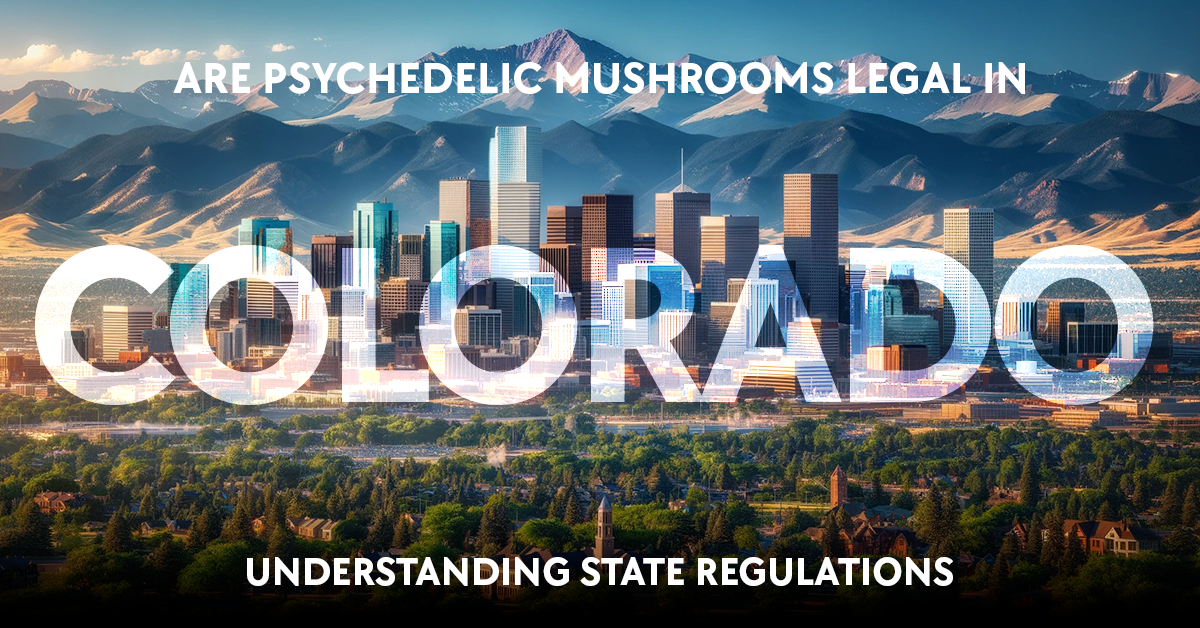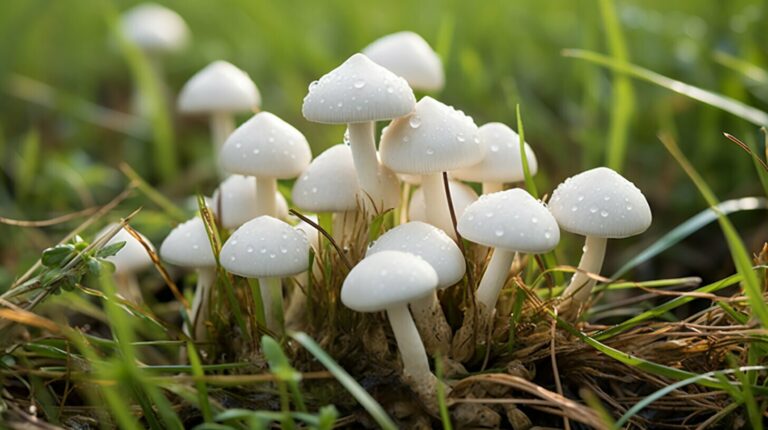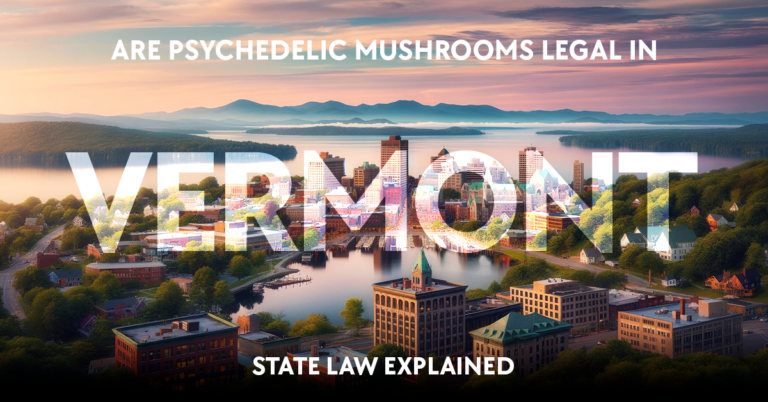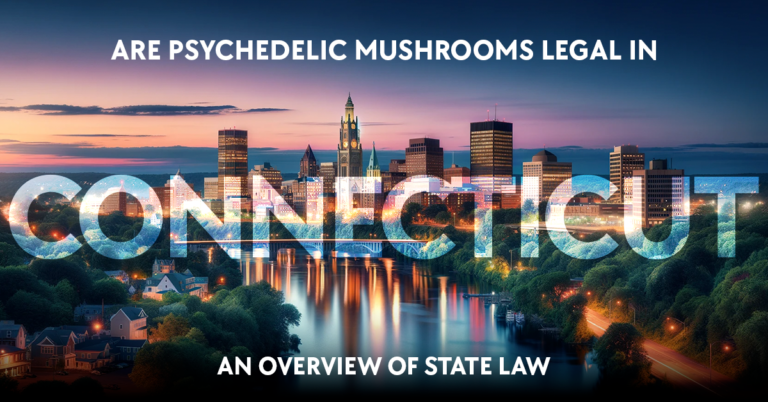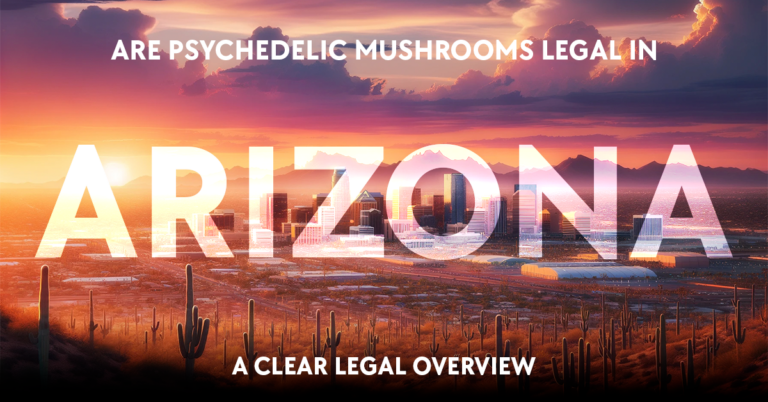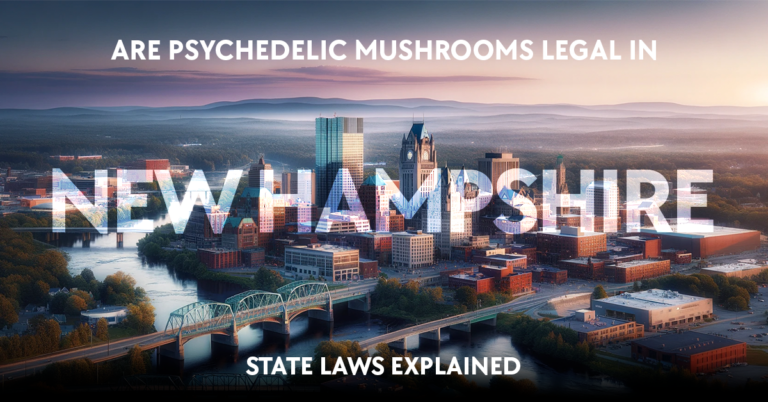Understanding the legal status of psychedelic mushrooms in Colorado is important as it reflects a changing landscape of drug policy in the United States. In recent years, you might have heard about legislative movements concerning the decriminalization and potential legalization of substances like psilocybin, the psychoactive ingredient found in psychedelic mushrooms. Colorado has been at the forefront of this shift, with significant developments impacting the legal status of these substances within the state.

Decriminalization initiatives aim to reduce or eliminate legal penalties associated with the possession and use of psychedelic mushrooms. In Colorado, you have the city of Denver, which became the first U.S. city to decriminalize psilocybin mushrooms in May 2019. This means that while psilocybin remains illegal under state and federal law, its possession, use, and personal cultivation are considered the city’s lowest law enforcement priority.
When considering legalization, it’s distinct from decriminalization as it involves establishing a regulated framework for the legal production, distribution, and use of psychedelic mushrooms. As of the writing of this article, psychedelic mushrooms are not fully legalized in Colorado. However, the state has witnessed proposals and discussions around frameworks that could allow for legal use, particularly for therapeutic purposes.
Legal Status of Psychedelic Mushrooms in Colorado
Table of Contents
https://www.youtube.com/watch?v=pIYWNPVdofk&embed=true
Before diving into the specifics, it’s important for you to understand that Colorado has recently passed Proposition 122 which affects the legal status of psilocybin, the active compound in psychedelic mushrooms. While they are not fully legalized, the regulatory landscape is shifting towards decriminalization.
Proposition 122 and Its Implications
In November 2022, Colorado voters approved Proposition 122, which is a significant measure in the move towards decriminalizing psychedelic mushrooms. This proposition means that the State has initiated a framework to not only decriminalize but also to regulate the access to psilocybin for adults over the age of 21. While this does not equate to full legalization, it represents a shift in policy from prohibition towards a therapeutic and controlled approach to psilocybin use.
Current Laws and Regulations
As of your current knowledge, the decriminalization of psilocybin mushrooms means that while their possession and use remain illegal under federal law, Colorado law enforcement will treat these offenses as the lowest priority. Additionally, it is not permissible to sell psilocybin mushrooms, and distribution remains a criminal offense. However, under Proposition 122, there are provisions to create “healing centers” that are approved to administer psilocybin services under strict regulations, although these are not yet operational. This reflects a nuanced position that separates Colorado from states where no form of decriminalization has taken place.
Keep in mind that, as with any legal matter, the implementation and details are subject to evolve as regulations are developed and as the state navigates the complexities of integrating this new approach to psilocybin within existing legal frameworks.
Psychedelic Substances Covered Under Colorado Law

Colorado has established legal frameworks regarding the use of certain psychedelic substances, with recent reforms focused particularly on psilocybin mushrooms, also known as magic mushrooms. These frameworks differentiate between the decriminalization of certain substances and the permissions for their use in therapeutic or research settings.
Five Psychedelic Substances Defined
- DMT (Dimethyltryptamine): A powerful psychedelic compound which is not decriminalized in Colorado and remains a controlled substance.
- Mescaline: An alkaloid from the peyote cactus with psychedelic properties, illegal except for certain religious uses by recognized groups.
- Ibogaine: A psychoactive compound from the African iboga shrub, categorized as a Schedule I controlled substance in the U.S., including Colorado.
- Natural Medicine: This broad term includes various naturally occurring substances with psychoactive effects; their legal status varies based on the specific compound.
- Psilocin: Along with psilocybin, it’s one of the primary psychoactive components of psychedelic mushrooms; Colorado has made moves towards its decriminalization and research.
Psilocybin and Psilocin Specifics
Psilocybin and psilocin, the active compounds in psychedelic mushrooms, have been decriminalized in Denver, Colorado—it was the first U.S. city to do so. Statewide, the legal framework regarding psilocybin remains complex, as Colorado became the second state to partially decriminalize the substance by approving its use and possession in certain contexts, while it remains illegal federally. Despite this, significant strides have been made in distinguishing these substances for medical benefits, highlighting their potential as natural medicine under controlled conditions.
Regulatory Framework

In Colorado, the advent of policy changes regarding psychedelic substances has led to specific regulatory structures. You will see how the Department of Regulatory Agencies and the Natural Medicine Advisory Board play pivotal roles in maintaining the legality and guidelines for the use of psychedelic substances within licensed healing centers.
Role of the Department of Regulatory Agencies
The Department of Regulatory Agencies (DORA) is instrumental in Colorado’s management of psychedelic substances following their decriminalization. It ensures compliance with the state’s laws and that entities adhere to the policies set forth under the new legal framework. You must understand that DORA’s enforcement and regulatory responsibilities are crucial for maintaining public safety and professional standards within this emerging area.
The Natural Medicine Advisory Board
The establishment of the Natural Medicine Advisory Board is a critical component in Colorado’s regulatory framework. This board is tasked with advising DORA on best practices and standards concerning the safe and ethical use of natural medicines, including psychedelics. As a stakeholder in this industry, staying informed about the Board’s recommendations is essential for ensuring your compliance with state regulations.
Requirements for Licensed Healing Centers
To operate as a licensed healing center dealing with psychedelics, you must comply with a multitude of requirements. These include obtaining proper licensing, adhering to safety protocols, and upholding ethical standards for the administration of psychedelic substances. Rigorous inspection and licensing processes by DORA ensure that healing centers provide services that meet state-approved guidelines for the responsible use of psychedelics.
Public and Personal Health Considerations

When considering the legal status of psychedelic mushrooms in Colorado, your understanding of the impact on public and personal health is critical. This encompasses both the safety protocols necessary to reduce harm and the exploration of mushrooms’ potential therapeutic benefits in a controlled environment.
Safety and Harm Reduction
For your safety and the well-being of the community, harm reduction practices are paramount. Colorado’s shift towards legalizing psychedelic mushrooms brings an obligation to implement measures that ensure responsible use. You should be aware of the legal protections and guidelines that are in place to prevent misuse and mitigate health risks, such as the guidelines discussed in scientific literature. Key aspects include:
- Education: Comprehensive information on the effects and risks associated with psilocybin usage.
- Support Systems: Access to professional help for those who experience adverse effects during or after use.
When using psilocybin, you must do so in a manner that prioritizes your safety and the safety of those around you.
Potential Therapeutic Benefits
Research into the therapeutic applications of psychedelic mushrooms is expanding. As someone interested in this area, you may find it relevant that psilocybin has been studied for its potential to alleviate symptoms in cases of mental health conditions such as PTSD, depression, and anxiety. In light of legislative reforms, you should understand that:
- Depression and Anxiety: Investigations suggest that psilocybin may offer relief for treatment-resistant depression and anxiety.
- Terminal Illness: Patients facing terminal illness sometimes report reductions in existential distress after psilocybin use.
While there is promise, you should approach potential benefits with caution, taking into account the current legal framework and available medical advice.
Authorized Activities and Limitations
In Colorado, the evolving legal landscape surrounding psychedelic mushrooms introduces specific permissions and regulations for their use. Your understanding of what’s allowed — including cultivation, sale, and personal use — is crucial in navigating these changes.
Cultivation and Possession
You are permitted to grow a certain amount of psychedelic mushrooms for personal use following Colorado’s drug law reforms. However, it’s important to keep in mind that possession is only decriminalized up to a defined limit, and exceeding this amount could lead to legal repercussions.
Retail Sales and Dispensaries
While Colorado has laid the groundwork for psychedelic retail sales through licensed dispensaries, these sales are tightly regulated. You can expect strict oversight on the production and distribution of psychedelic mushrooms, ensuring sales are conducted within the bounds of state guidelines.
Sharing and Personal Use
Sharing psychedelic mushrooms with others is allowed to a degree, but sale or exchange for compensation remains illegal. As for personal use, it is decriminalized, meaning you won’t face criminal charges for possessing small amounts, but there are still rules to be obeyed, particularly concerning public consumption and the influence of such substances in public or risky settings.
Cultural and Societal Impact
In Colorado, the evolving legal landscape of psychedelic mushrooms marks a significant cultural shift, influenced by voter support and the potential for new mental health treatments.
Support for Psychedelics from Voters and Cities
In May 2019, Denver became the first city in the United States to decriminalize psilocybin, the psychoactive compound in psychedelic mushrooms. This groundbreaking move reflects a shift in voter sentiment towards a more progressive stance on drug policies. The public health conversation is changing, as you can see the growing support for psychedelics as tools for well-being, rather than substances to be banned. Oregon followed suit, with voters passing a measure to legalize the supervised use of psilocybin for therapeutic purposes. This cascade of change speaks to a broader cultural acceptance and a willingness to reconsider the role of psychedelics in society.
Influence on Mental Health Treatment
Your understanding of mental health treatment may be expanded by considering the implications of psychedelic research. Clinical trials and academic studies suggest that psilocybin may offer significant benefits in treating a range of mental health conditions. These findings are steering public health conversations toward the inclusion of psychedelics as viable options for treatment. In Denver and other parts of Oregon, where policies have been changed, your access to psychedelic-assisted therapy could potentially be within reach. The cultural narrative is shifting, as these therapeutic practices are not only becoming more normalized but are also being advocated for by mental health professionals and researchers, highlighting their potential to treat depression, anxiety, and PTSD.
Administrative Aspects
In Colorado, the progression towards allowing psilocybin mushrooms has involved careful planning and regulation, where entities such as facilitators and licensed professionals play a critical role.
Implementation Process and Timeline
The implementation of legal psilocybin use in Colorado is structured to unfold methodically. It began with advocates like Kevin Matthews leading the charge to decriminalize psilocybin in Denver. Following Denver’s initiative, state-level measures were devised to extend legal protections and establish a framework for controlled use. Your understanding of the timeline is crucial, as it outlines when certain facilities may begin operation and when professionals can legally engage with psilocybin therapies.
- Phase 1:
- Decriminalization initiated
- Public awareness campaigns
- Phase 2:
- Legal frameworks established
- Licensing protocols developed
Legal Protocols for Facilitators and Professionals
As a facilitator or licensed professional, you must adhere to strict legal protocols. This includes obtaining the appropriate licenses to operate within Colorado’s legal landscape.
-
Facilitators:
- Required to complete certified training
- Must follow guidelines for supervised administration
-
Licensed Professionals:
- Face scrutiny to ensure compliance with state laws
- Subject to periodic review processes to maintain licensure
Kevin Matthews and others have been instrumental in ensuring these protocols are in place to safeguard both the recipient and the provider of psychedelic therapy. Your role within this framework is defined by these legal contours, ensuring a responsible and ethical administration of psychedelic substances.
Legal Precedents and Reform Movements
You’re witnessing a dynamic shift in drug policy as momentum builds from grassroots advocacy to legal reformation. Colorado is at the forefront, navigating through intricate legal and societal considerations to reshape its approach to psychedelic substances.
Colorado’s Journey toward Decriminalization
In May 2019, Denver took a groundbreaking step by passing a ballot initiative known as I-301, which signaled the beginning of psilocybin mushroom decriminalization in Colorado. This initiative made the personal use and possession of psilocybin mushrooms among individuals 21 and older the city’s lowest law enforcement priority. It forbade the city from spending resources to impose criminal penalties, a significant move towards broader decriminalization efforts.
Comparison with Cannabis Legalization
The pathways to legalization for both psilocybin mushrooms and cannabis in Colorado share similarities. Much like the push for psilocybin reform, cannabis legalization began with local decriminalization efforts that eventually led to statewide action. The election results in 2012 transformed the state’s approach to cannabis, with Colorado becoming one of the first states to legalize its recreational use through Amendment 64. Your understanding of these reforms benefits from recognizing how both movements relied on voter-driven ballot initiatives to challenge and change the legal status of these substances.
Implications for Criminal Justice
With the legislative changes in Colorado, you may be wondering how legal shifts regarding psychedelic mushrooms are influencing the criminal justice system. Particularly, the focus is on how these changes affect criminal records and necessitate adjustments in law enforcement protocol.
Impact on Criminal Records
If you have a criminal record involving psilocybin mushrooms, the recent changes in legislation may lead to significant implications. Colorado passed a law highlighting the decriminalization of psilocybin, which could result in alterations to your criminal record. Notably, decriminalization does not equate to expungement; previously recorded offenses might not be automatically cleared. However, the shift suggests a potential decrease in future criminal penalties and a reevaluation of past convictions.
Law Enforcement Adjustments
Law enforcement agencies in Colorado must adapt to the updates in psychedelic drug policy. These adjustments involve training officers to recognize the difference between decriminalized substances and those that are still fully illegal. The decriminalization of psychedelic mushrooms means that while possession and use might not lead to new criminal penalties, they remain regulated substances, and you may still encounter law enforcement if found in possession without adherence to the new guidelines.
Future Outlook
As you look to the horizon of psychedelic mushrooms in Colorado, two key areas will shape their legal and societal standing: the advancement in psychedelic research and education, and the evolving market dynamics, including the presence of a gray market.
Psychedelic Research and Education
The trajectory of psychedelic mushrooms in Colorado will be heavily impacted by ongoing research efforts and how they inform education. Colorado has positioned itself at the forefront, with the state’s recent move to partially decriminalize psilocybin setting a precedent for further scientific inquiry. A significant increase in studies looking into therapeutic applications can pave the way for more comprehensive programs aimed at educating both healthcare professionals and the public. This could potentially facilitate a shift in how these substances are understood and regulated.
Market Dynamics and the Gray Market
The market for psychedelic mushrooms is likely to undergo substantial changes in relation to their legality. With partial decriminalization, there’s a chance to witness an emerging gray market, where the boundaries of legality are not entirely clear. Availability and cost might fluctuate as consumer demand and legislative directions evolve. Keep an eye on how legislation adapts, which will be a strong determinant of the market’s direction, potentially leading to a more established legal market, further influencing availability and accessibility for you.
Frequently Asked Questions
In this section, you’ll find detailed answers regarding the legal intricacies of psilocybin mushrooms in Colorado.
What is the legal status of psilocybin mushrooms in Colorado?
Psilocybin mushrooms are classified as a Schedule I controlled substance in Colorado, which means they are illegal to possess, use, or distribute under federal and state law.
Has Colorado passed any legislation regarding the decriminalization of psychedelic mushrooms?
Denver, Colorado, has passed an initiative to decriminalize the possession and use of psilocybin mushrooms within city limits, making such acts the lowest law enforcement priority. However, this does not change the illegality at the state and federal levels.
What are the penalties for possession or distribution of psilocybin mushrooms in Colorado?
Penalties for possession or distribution of psilocybin in Colorado vary, but they generally involve fines and incarceration. Distribution carries much harsher penalties compared to possession for personal use.
Are there any exceptions or medical programs in Colorado for the use of psychedelic mushrooms?
As of the current date, Colorado does not have any sanctioned medical programs allowing the use of psychedelic mushrooms. Psilocybin remains illegal under state law except for specific decriminalized localities.
How does Colorado law differentiate between personal use and intent to distribute psilocybin?
Colorado law determines intent to distribute psilocybin based on factors such as the quantity of the substance, presence of drug paraphernalia, and how the mushrooms are packaged. Larger quantities and packaging indicative of sale typically signal an intent to distribute.
Can individuals grow psychedelic mushrooms for personal use legally in Colorado?
No, it is illegal to cultivate psilocybin mushrooms in Colorado for any purpose, including personal use. This activity is considered manufacture of a controlled substance under state law.

